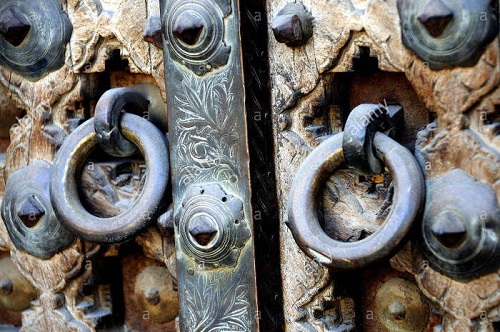FWP:
For background see S. R. Faruqi's choices. This verse is NOT one of his choices; I have added it myself, mostly because Ghalib chose it for inclusion . For more on Ghalib's unpublished verses, see the discussion in {4,8x}.
Ghalib experimented with the same idiom, ;halqah-e beruun-e dar , in {54,1}, which made it into the divan-- but was not chosen for See {54,1} for general discussion of the expression. Here, the meaning seems more clearly limited to the sense of a chain-link.
My own best guess for a reading is that last night the lover waited so long in vain outside the beloved's door that his 'heat, agitation, affliction' all leaked away as his strength failed him and no hope of her arrival remained. Now, by daylight, all that is left is a kind of frozen immobility-- his eyes watch over her door in helpless, numb fixation, like links of the chain that would be securely attached to it in her absence.

Asi:
The excess and extremity of my waiting has become a cause of dismissal/disgrace for my 'heat'; and that eye of mine that has remained open in waiting has become the chain on the outside of the door, because of which now 'heat' cannot at all enter. The use of a door-chain as a simile for an opened eye is extraordinarily harmonious and appropriate.
== Asi, p. 103